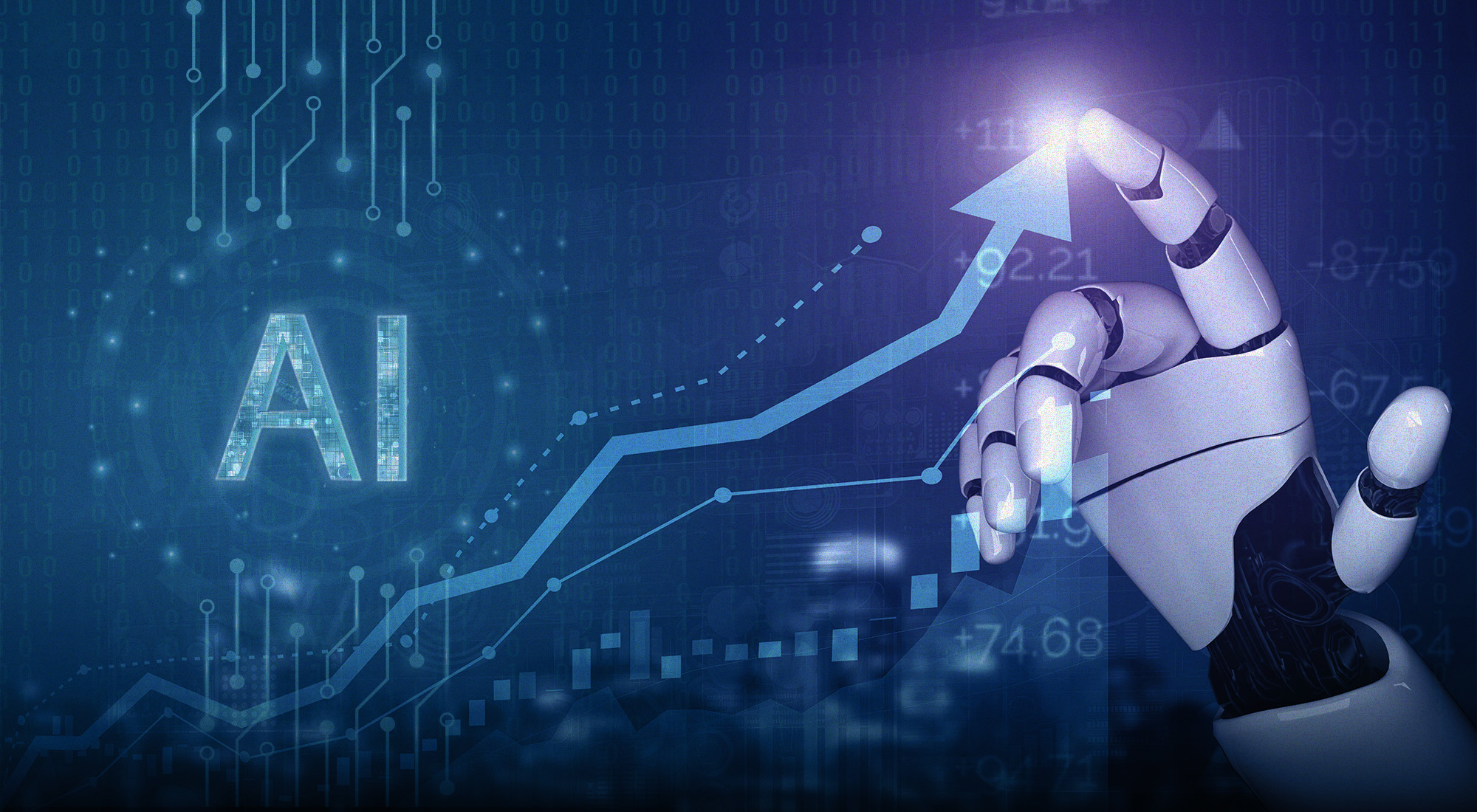Artificial Intelligence (AI) is transforming the world in ways that were once unimaginable. AI is shaping our future, and the role of women in this transformation is integral. On 11 February 2024, the world observed the 11th International Day of Women and Girls in Science. This occasion serves as an opportunity to evaluate and highlight the critical role that women are playing in shaping the field of AI.
This insight will explore the contributions of women in AI and emerging technologies. Specifically, it will examine the profiles of female leaders in cutting-edge AI research, their contributions to breakthroughs in AI applications, and visionary projects led by women for 2030 and beyond.
Additionally, this article will examine strategies for promoting and encouraging women in AI academic and professional fields, the role of mentoring and networking to advance women’s careers in AI, as well as future trends for building a diverse and inclusive AI workforce.
Finally, this insight will look at the impact of women’s perspectives on AI application design, the importance of gender diversity in AI product development, and case studies of AI solutions enhanced by women’s insights. By thoroughly examining these topics, it aims to provide an insight into the significant contributions made by women in shaping the field of AI.
Women Innovators in AI and Emerging Technologies
Who are the female leaders pioneering AI research?
Among the trailblazers in the AI arena, women such as Fei-Fei Li, the founder of the Stanford AI Lab, have become synonymous with the pioneering spirit that drives the industry forward.[1] These female leaders are not confined to the halls of academia but are also integral parts of esteemed institutions such as MIT, and powerhouses in the tech industry like Google and OpenAI.[2] Their work transcends the mere development of new technologies; it embodies a commitment to shaping a more inclusive future for AI. By actively fostering diversity and mentoring upcoming female AI professionals, these leaders are not only enhancing the current landscape but are also securing a more equitable future for the field.[3] Their contributions are marked by a distinctive blend of technical innovation, ethical foresight, and a dedication to addressing real-world issues, ranging from healthcare to environmental sustainability.[4] With their hands at the helm, the direction of AI research is steered toward a horizon that values diversity of thought and the betterment of society.[5]
How have women contributed to breakthroughs in AI applications?
Building on the foundation set by women working with industry giants like MIT and Google, women are significantly contributing to the evolution of AI in the realm of education. Their efforts have been pivotal in creating more inclusive and effective learning tools that address the diverse needs of students. By developing platforms that adapt to individual learning styles, women innovators are making education more personalized and accessible, thereby bridging the gap in educational disparities.[6] This focus on educational AI tools by women is not just about technological advancement but also about empowering students from various backgrounds, ensuring that the future workforce is equipped to handle the complexities of tomorrow’s challenges.[7] Moreover, these contributions by women in AI not only enhance the technological landscape but also bring much-needed diverse perspectives to the field, which is essential for the development of AI applications that are equitable and represent the multifaceted nature of our society.[8]
What are the visionary AI projects led by women for 2030 and beyond?
Despite the undeniable strides made by women in AI, their representation in the field remains disproportionately low. The World Economic Forum highlights a stark disparity, noting that women comprise a mere 22% of the global AI expert workforce.[9] This underrepresentation is even more pronounced when considering the broader landscape of AI and machine learning, with only 22% of professionals in these areas being women.[10] The impact of this gender gap is not merely a matter of numbers; it affects the development and direction of AI technologies.
Emerging technologies like AI and Blockchain are particularly affected by this imbalance, having garnered a reputation for being predominantly male-oriented.[11] In response to this, women leaders are increasingly recognized for their pioneering contributions to AI research and startups, not just for their innovative work but also for their advocacy for more inclusive and diverse AI communities.[12] Their efforts are crucial not simply for the sake of equality but also for ensuring that AI systems are designed with a broad spectrum of perspectives, ultimately leading to more equitable and effective technology solutions.
Fostering Female Talent in AI Research and Development
What strategies support women in AI academic and professional fields?
To effectively support women in AI academic and professional fields, it is essential to cultivate an environment that not only encourages their participation but also nurtures their growth and leadership potential. Offering scholarships, grants, and other financial incentives plays a critical role in reducing barriers to entry for women pursuing education in AI, as such support alleviates the economic challenges that may deter them from engaging in this field. Beyond financial assistance, providing mentorship is another key element; experienced professionals can guide and inspire women through their careers, offering invaluable advice and opening doors to networking opportunities that might otherwise be inaccessible.[13] Importantly, by presenting tangible examples of women who have excelled in this domain, highlighting successful women in AI, such as Andrea Gallego and Daniela Rus, helps to inspire aspiring female AI professionals and academics.[14] These strategies collectively contribute to a more inclusive and supportive landscape for women in AI, fostering their development and enabling them to advance into leadership roles that are instrumental in driving innovation and diversity in the field.
How does mentorship and networking advance women’s AI careers?
Building on the groundbreaking work of female AI leaders from prominent institutions, mentorship, and networking emerge as pivotal tools to further advance women’s careers in AI. Networking serves as a catalyst for career development by providing platforms to forge connections with seasoned AI professionals.[15] Such connections are not merely transactional; they are conduits for sharing invaluable experiences that enrich the professional journey of women in AI.[16] Moreover, mentorship programs fulfill a complementary role, pairing aspiring women in the field with mentors who offer personalized guidance and support, helping to navigate the complexities of a career in AI.[17]
These programs are not only about overcoming technical hurdles but also about fostering an environment of continuous learning and professional growth.[18] Indeed, by engaging in mentorship and networking, women can gain exposure to professional development opportunities and a culture of knowledge sharing that is essential in the rapidly evolving landscape of AI.[19] Mentorship from women who have achieved leadership roles further adds value by presenting diversified perspectives and modeling ethical leadership, which is crucial in shaping AI’s future in a socially responsible manner.[20] Thus, these interactions not only support individual career advancement but also contribute strategically to the empowerment of women in AI, which is essential to unlocking the full potential of this transformative technology.[21]
What are the future trends for a diverse and inclusive AI workforce?
When evaluating the significance of women’s contributions to AI, it becomes increasingly clear that gender diversity within the AI workforce can particularly benefit AI development. As women represent roughly 47 percent of the U.S. labor force, they form a substantial potential source of diverse talent for AI that remains underutilized.[22] This untapped talent pool is not merely a numerical asset; women bring distinct perspectives that can enhance the interpretative and decision-making aspects of AI, potentially catching nuances and implications that might be overlooked in less diverse teams.[23] The increasing demand for AI specialists is met with a growing realization that diversity, including gender diversity, is essential for creating more effective and ethically sound AI systems.[24] Organizations are not only ramping up their AI hiring but are also looking to diversify their talent sources, aiming to bridge the gender gap and promote equity in the workforce.[25] This trend acknowledges that having more diverse employees in designer and developer positions can lead to AI and machine learning solutions that are more representative of and responsive to a wider range of needs and challenges.[26]
Conclusion
The integral role of women in the evolution of Artificial Intelligence is pivotal to forging a future in the industry that is both inclusive and fair. Despite the current underrepresentation of women in AI, trailblazers from esteemed institutions like MIT and Google are setting a precedent for more heterogeneous and competent AI frameworks. Their pioneering endeavors in developing AI educational tools are emblematic of their innovative prowess, ethical vision, and commitment to solving real-world problems. However, the journey doesn’t end here; continued mentorship and networking are vital to further enhance the professional trajectories of women in AI. This strategy underscores the importance of having a diverse workforce in AI design and development roles, as it results in AI solutions that are more reflective of and adaptable to a broad spectrum of societal needs and challenges.
The significance of this gender disparity extends beyond mere statistics and has profound implications for the evolution and trajectory of AI technologies. As organizations intensify their AI recruitment efforts and seek to diversify their talent pools, they aim to close the gender gap and foster workplace equality. Highlighting the accomplishments of women in AI is not just about recognition; it serves as a beacon of inspiration for future female AI specialists and scholars. The involvement of women in AI is not limited to enhancing the technological framework; it introduces essential diverse viewpoints into the domain. This diversity is crucial for the creation of AI applications that are fair and reflective of the complex nature of our global society. In conclusion, the future of AI is not just shaped by code and algorithms but also by the relentless drive and transformative impact of women in the field. Their involvement and influence go beyond mere participation; they are the catalysts for groundbreaking progress, guaranteeing a future for AI that is as inclusive as it is revolutionary.
[1] Anton Ioffe, “The women in AI making a difference,” Borstch, February 18, 2024, borstch.com/blog/startup/the-women-in-ai-making-a-difference.
[2] “The Top 10 women in the world of AI in 2023,” AI, April 5, 2023, retrieved February 8, 2024, from aimagazine.com
[3] Anton Ioffe, “The women in AI making a difference,” op. cit.
[4] Ibid.
[5] Ibid.
[6] Ibid.
[7] Ibid.
[8] “The Top 10 women in the world of AI in 2023,” op. cit.
[9] “30 Most Inspiring Women in AI,” Engati, retrieved February 12, 2024, from www.engati.com/blog/top-women-in-ai
[10] Abie Norman-Walker, “7 Women Leaders in AI/ML to Follow,” Seldon, December 19, 2022, retrieved February 12, 2024, from www.seldon.io/7-women-leaders-in-ai-ml-to-follow.
[11] “Emerging Technologies Need Diversity: Innovative Women in AI/Blockchain to follow in 2019,” Forbes, February 3, 2019, retrieved February 12, 2024, from www.forbes.com
[12] Anton Ioffe, “The women in AI making a difference,” op. cit.
[13] Samira Gholizadeh, “Fostering women’s leadership in AI: Strategies for inclusion and Empowerment,” IBM Community, September 6, 2023, retrieved February 12, 2024, from https://community.ibm.com/community/user/ai-datascience/blogs/samira-gholizadeh/2023/09/06/fostering-womens-leadership-in-ai-strategies-for-i
[14] Ibid.
[15] Ibid.
[16] Ibid.
[17] Ibid.
[18] Ibid.
[19] “How Women Leaders are Transforming the AI Sector?,” Pragati Leadership, February 13, 2024, retrieved February 14, 2024, from pragatileadership.com
[20] Ibid.
[21] Ibid.
[22] “The State of Women in AI Today,” Deloitte, retrieved February 14, 2024, from www2.deloitte.com.
[23] Ibid.
[24] Ibid.
[25] Ibid.
[26] Ibid.








